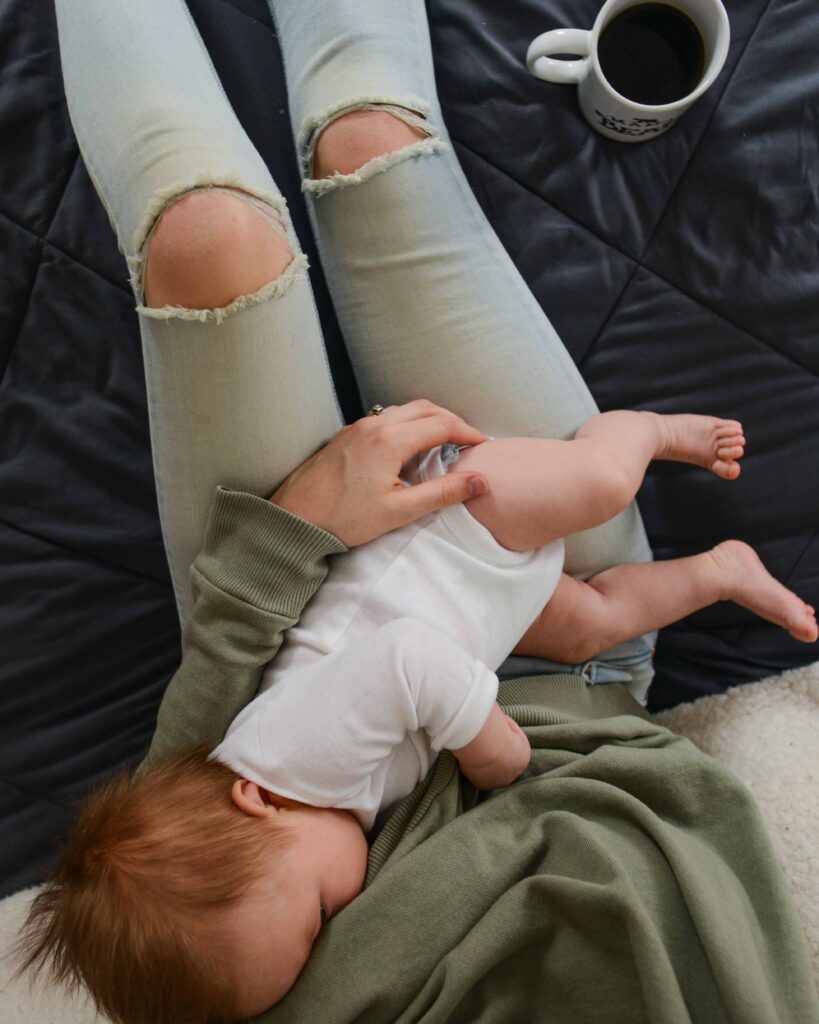Breastfeeding is a beautiful process and one of the best ways to bond with your baby. Through breastfeeding, the baby nourishes themselves and gets a feeling of safety and security from the mother. So why does your baby squirm while nursing?!
Squirming is perfectly natural in babies. It could simply mean the baby is in the wrong position and uncomfortable, they’re getting tired, or they may even be playing. More serious reasons for squirming while breastfeeding could be pain, such as an ear infection.
As per the WHO guidelines, a baby should be exclusively breastfed until six months of age. Thus, having the right approach while feeding the baby is very important.
Breastfeeding is not an easy task for a new mother. It causes a lot of discomfort like sore nipples, leaking breast, fungal infection and difficulty in expressing milk. Most mothers overcome these difficulties and are able to even enjoy breastfeeding.
But things do become all the more difficult when the baby starts squirming. The baby turns around and start wiggling.
The new mom cannot explain the reasoning and think they are responsible for the baby’s reaction.
In reality, this reaction could be a part of the baby’s natural growth.
Is Squirming A Natural Reaction?

Squirming is a natural reaction for most babies. But how natural it is depends on the baby’s age.
Normally, squirming is observed in babies in 6-8 weeks of age. For a newborn everything is new. If they experience a slight discomfort during feeding they express it by squirming.
As the baby grows, they are more comfortable with the world around. Thus, the chances of squirming gets reduced with age. Growth spurts in babies can also result in squirming reaction.
However, remember that this is a temporary phase which the baby outgrows fast.
Why Does My Baby Grunt And Squirm While Breastfeeding?

Squirming while breastfeeding is normal and can be caused by one or more of the following factors:
- Wrong positioning
The proper positioning is very important for the baby to lie down comfortably. It helps the baby to latch correctly and suck in the milk.
If the baby’s lying position is not comfortable, it will show displeasure through squirming.
Make sure you experiment with different breastfeeding positions as no two babies are the same.
- Flow speed
During the initial stage of breastfeeding, the sucking will be shallow and faster to let down the milk. Once the baby gets the milk, the sucking becomes deeper.
Sometimes, the flow of milk will be too fast that the baby cannot manage it. In some mothers, one breast will have a normal milk flow whereas the other will have a gush of milk.
The baby tends to squirm when it cannot manage the flow of milk.
- Tiredness
You might feed the baby, thinking that they are hungry. But, in reality, the baby may be more tired than hungry. In such a situation, the baby shows displeasure through squirming.
Rubbing the eyes and yawning are other signs that the baby needs a nap and not a feed.
- Health issues
Health issues of the baby or the mother can make the baby squirm while breastfeeding.
If the baby has ear pain, fever or any other discomfort, they tend to squirm and wriggle while breastfeeding.
Any infection in the mother’s nipple can cause a change in the taste of the milk. This can also make the baby squirm.
- Teething
If the baby is around six months, you can suspect teething to be the cause of squirming.
Teething causes inflammation in the gums which can be painful for some babies. This makes it difficult to feed, resulting in squirming.
- Wetness
All babies prefer a neat and clean diaper. Similarly, the clothes should also be dry.
If the diaper is soiled or if the clothes are sweaty or wet from milk, the baby feels uncomfortable. This is expressed through squirming reaction.
- Playing
Playing is a part of babies growth and they continue doing this even while being fed. Babies tend to kick and pull your hair while feeding.
If they are in a playful mood they tend to squirm. There is nothing much you can do except let the baby play.
How To Stop The Baby From Squirming & Make Them More Comfortable?

The best way to stop the baby from squirming is to find the underlying cause and provide enough comfort to the baby.
- Find the correct position
If the cause of squirming is the uncomfortable position while feeding, you should try to make it more comfortable.
Place a pillow on the lap and bring the baby close to your breast. You should not lean forward while feeding the baby.
The baby should be able to move the hands and legs freely while feeding.
- Provide adequate sleep
The baby’s little body cannot handle tiredness and hunger at the same time. You should ensure that the baby gets atleast 12-16 hours of sleep a day depending on the age.
The baby should be alert while being fed so that they take in adequate quantity of milk.
- Ensure skin to skin contact
Skin to skin contact with the mother is very important for the baby to feel comfortable. While feeding, you can rub the baby’s body and head.
You can also hold the little hand and sing some soothing song.
- Burp the baby
The baby sucks in a lot of air while being fed. If there is too much gas inside the baby’s body, the baby will feel uncomfortable and might squirm.
To prevent this, it is a good idea to burp the baby in between feed. This way, the trapped gas can be released and the baby can take in adequate milk.
- Check the mood
If the baby is not so hungry and is in a playful mood, you should let the baby play. If you try to feed the baby forcibly then they are more likely to squirm and you will have a difficult time feeding them.
In Conclusion…
Most of the time squirming can be avoided by making the baby comfortable and feeding him at the right time.
Some babies squirm even while being bottle fed. But even after taking all the adequate steps if the baby still continues to squirm, it could be a sign of ill health. It is best to consult a pediatrician to rule out any underlying medical condition.
Enjoyed this? Make sure to read these next:
10 Easy Ways To Firm Sagging Breasts After Breastfeeding
Double Chocolate Lactation Brownies Perfect For Breastfeeding Moms